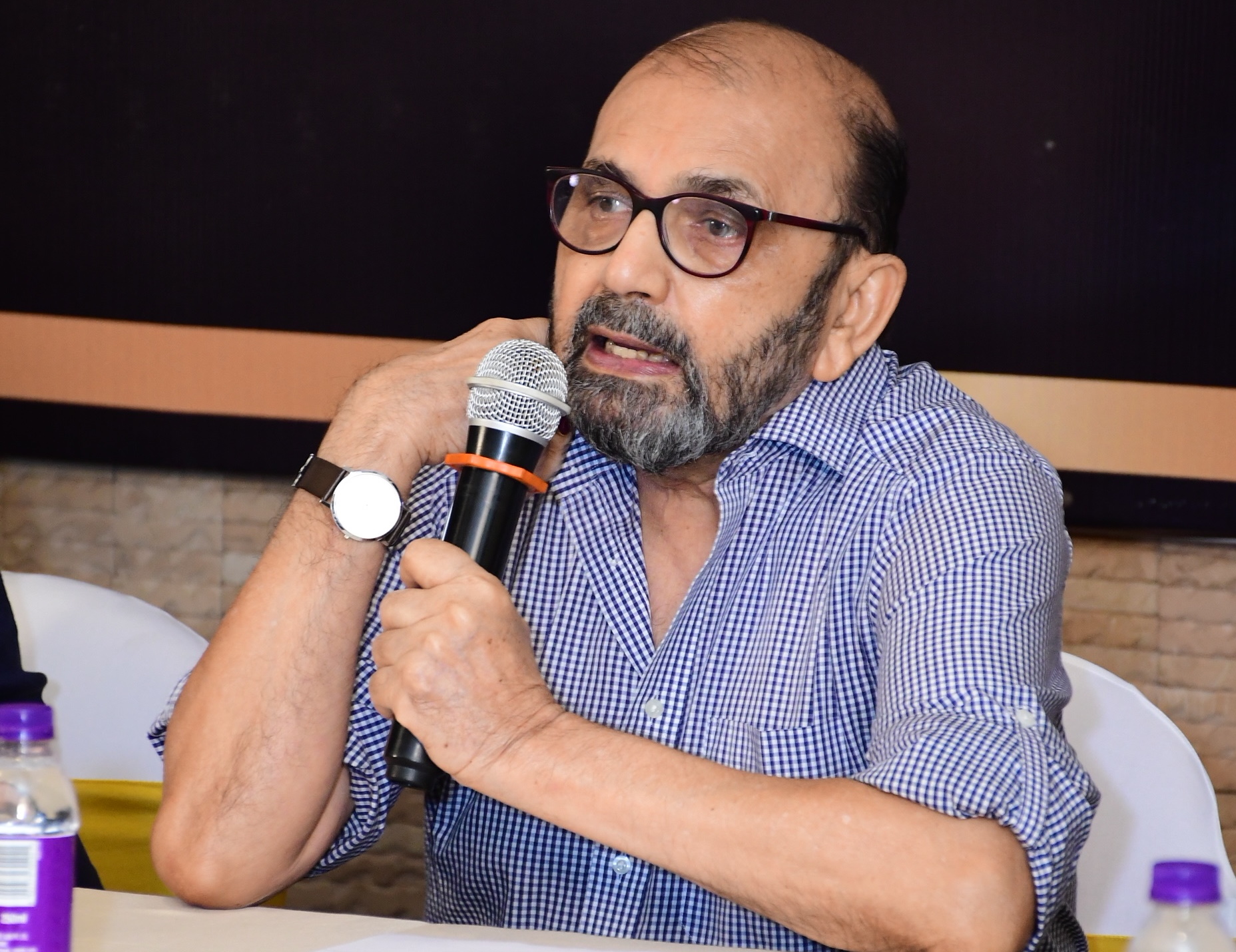'While We Watched' has become more timely than ever: director Vinay Shukla
Later, it won the Cinephile Award at the 2022 Busan Film Festival.Billed as a turbulent newsroom drama which intimately chronicles the working days of the Ramon Magsaysay Award recipient Kumar, Shukla said the seed of the 92-minute documentary took root when he felt that the senior journalist appeared tired as he doggedly put out his broadcasts.He increasingly seemed like someone who was questioning his relevance in the news industry around him which seemed to be changing rapidly.

- Country:
- India
Filmmaker Vinay Shukla says his documentary film ''While We Watched'', which chronicled Ravish Kumar's routine at NDTV India, is an exploration of ''adult loneliness'' and has become ''more timely'' following the senior journalist's resignation from the news channel.
Shukla is best known for the documentary feature ''An Insignificant Man'' which chronicled the rise of the Aam Aadmi Party under Delhi Chief Minister Arvind Kejriwal. ''My film is not just about Ravish's loneliness, it's the loneliness faced by the people who go against the mainstream current. If anything, the film has become more timely than ever,'' the Raipur-born director told PTI in an interview.
Kumar -- who had been associated with NDTV for almost three decades -- announced his exit from the channel in November amid the takeover process of NDTV by the Adani Group, a day after its founders Prannoy and Radhika Roy stepped down from its board.
''The film is not necessarily a meditation about Ravish on NDTV and why he should or should not be there. It's about adult loneliness and the difficulties that one has to endure through the choices they make in their careers,'' added Shukla.
''While We Watched'', titled ''Namaskar, Main Ravish Kumar'' in Hindi, premiered to a great response at the 2022 Toronto International Film Festival where it also won the Amplify Voices Award. Later, it won the Cinephile Award at the 2022 Busan Film Festival.
Billed as a turbulent newsroom drama which intimately chronicles the working days of the Ramon Magsaysay Award recipient Kumar, Shukla said the seed of the 92-minute documentary took root when he felt that the senior journalist appeared ''tired'' as he doggedly put out his broadcasts.
''He increasingly seemed like someone who was questioning his relevance in the news industry around him which seemed to be changing rapidly. When I was watching his broadcasts, I realised I was watching someone who was not sure what the future holds for himself.
''Since, he was a known public figure who was going through this challenge, he's somebody on whom a lot of the people have an opinion on. I found that an interesting place to start,'' he said.
The director, who had no idea how news organisations function from within till he started working on ''While We Watched'', said his only reference to the ins and outs of media houses were acclaimed international dramas such as ''Spotlight'' and ''The Newsroom''.
Today when many journalists are accused of bias, Shukla said he wasn't in the search for ''a perfect journalist'' with his documentary.
''I wanted to lift the veil on the sort of unseen workings of a newsroom. All the chatter, opinions people have about the news or how it should be, they have little idea about how newsrooms work from within. This film is also an attempt to humanise the process of journalism. Once you understand a system, you have information which makes us well equipped,'' he added.
When he first approached Kumar, who enjoys a massive fan following across the country, Shukla said the former TV anchor was moving around with a bodyguard.
All in all, he shot for the film for 10-12 hours a day over a span of two years.
''I always try to make something that works even beyond the timeline, it can speak to other times as well. It is timeless. My ambition was to capture his loneliness, struggle, and the anxiety of news.'' And, what did Shukla discover about Kumar while shadowing the journalist at his former news organisation? ''Ravish usually wakes up and writes a 5,000-word essay on Facebook in the morning. In the evening, he would write his own broadcast. So in a day, I guess, he would write about 20,000 words. He will also be talking to people, probably a hundred phone calls every day.
''His phone keeps on ringing, so, that is him in the process of news, doing his own thing. Then maybe on some days, we would shoot with him and his family inside the house... My ambition was to just sit quietly and shoot,'' he recalled.
Asked what was Kumar's reaction to the documentary when he watched it, the director said the journalist was ''very distant''.
''It felt like he wasn't affected by it, He was like 'It's alright'. It's always difficult to watch a film about yourself and respond. It is a bit of an out-of-body experience that I have been told by a lot of people to watch a film about yourself.'' ''While We Watched'' is also a call for help, explained Shukla, adding he believes ''journalists deserve better''.
''Firstly, until we have a better system for journalists within the news organisation, we can't have better journalism. Secondly, in this world of complex problems, we need journalists who are trained in complexities.
''Lastly, there has to be a forum between the people, the government and the newspapers wherein there can be some sort of a better regulatory mechanism. There is far too much amount of privilege and power. There has to be accountability on the news organisations, especially on those who we know are causing damage,'' he added.
Besides Kumar, ''While We Watched'' also features Sushil Mohapatra, Swarolipi Sengupta, Sushil Bahuguna, Saurabh Shukla, and Deepak Chaubey.
(This story has not been edited by Devdiscourse staff and is auto-generated from a syndicated feed.)










